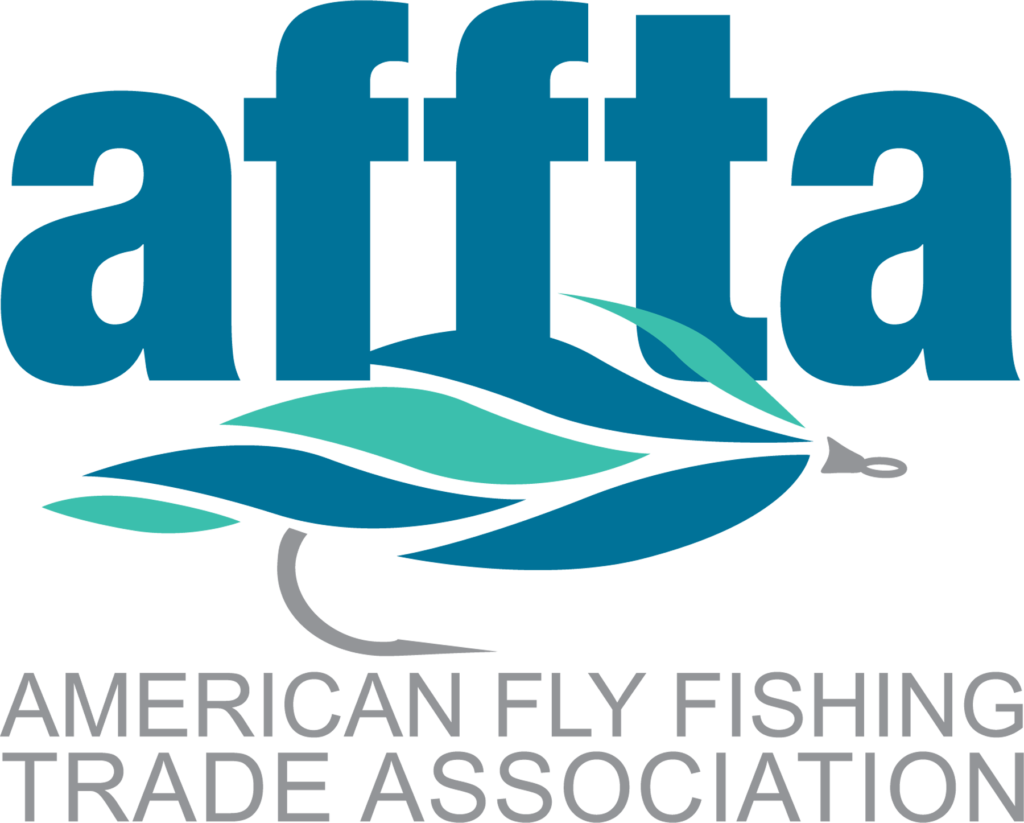AFFTA is proud to advocate for the future of the fly fishing industry. We represent our more than 600-members interests on behalf of resilience in the fisheries our members depend on, sustainability in business and by supporting our partners efforts through the strategic partnerships with conservation organizations.
AFFTA is proud to advocate for the future of the fly fishing industry. We represent our more than 600-members interests on behalf of resilience in the fisheries our members depend on, sustainability in business and by supporting our partners efforts through the strategic partnerships with conservation organizations.
AFFTA’s For Tomorrow’s Fish campaign educates and activates our membership to collaboratively advocate for conserving the abundant and resilient fish stocks, healthy, resilient and connected habitats and resilient fishing dependent communities our members depend on, through an economic lens as only your trade association can.
AFFTA monitors and effectively advocates for your economic resiliency and viability in D.C. and your State by actively seeking opportunities to represent the fly fishing industry in federal, state, and local decision-making processes. AFFTA ensures that policies support the industry’s long-term success, and fostering growth that benefits all stakeholders.
AFFTA’s For Tomorrow’s Fish campaign educates and activates our membership to collaboratively advocate for conserving the abundant and resilient fish stocks, healthy, resilient and connected habitats and resilient fishing dependent communities our members depend on, through an economic lens as only your trade association can.
Written by anglers, for anglers, For Tomorrow’s Fish is much more than another white paper. Led by the American Fly Fishing Trade Association (AFFTA) and AFFTA Fisheries Fund, with support from industry leaders and conservation partners, For Tomorrow’s Fish serves as the call to arms for an angler-led revolution where conservation-minded anglers are educated, motivated, and activated to demand progress toward healthy and abundant marine fisheries in the face of the impacts of our changing climate.
Federal funding for natural resources and the environment continues to erode and presently accounts for less than one percent of overall federal discretionary spending. In addition, pass-through funds from federal excise taxes paid by anglers, hunters, and recreational shooters fall increasingly short of help state fish and wildlife agencies meet their base needs for conserving fish and wildlife.
Access to fishing and hunting is the #1 concern of sportsmen and women nationwide and public lands provide much of that access. Unfortunately, access is repeatedly cited as a prime limiting factor associated with fishing and hunting participation—a recent survey of anglers found that 27 percent listed access to water as the biggest problem facing fishing today.
More than two-thirds of the land area in the United States is privately owned. Whether or not these lands are managed to conserve fish and wildlife, and whether they are available for access is answered by the question, “Do landowners benefit by managing for fish, wildlife, and recreation?”
AFFTA has undertaken a rigorous process to identify and better understand the primary threats to healthy marine fisheries and habitats, and to determine policy solutions capable of addressing these threats head-on. AFFTA worked with conservation partners to convene a Blue Ribbon panel, comprised of top scientists and managers in their respective fields, to identify the most critical threats to the sustainability of our marine fisheries. Please see the above tab for more information.
It is becoming increasingly evident that climate change is a fundamental economic threat as well as an environmental one. As such, climate change poses an unprecedented systemic risk to our economy and poses a potent risk multiplier of unknown strength. As the Biden Administration contemplates its response to climate change, attention to ocean health is paramount as warming ocean temperatures, acidification, shrinking ice sheets, and rising sea levels all attest. Oceans are a source of vast offshore renewable energy potential while coastal ecosystems are capable of absorbing carbon at rates up to four times those of terrestrial forests.
During the Trump Administration, a series of administrative decisions have been made that directly countermand the thoughtful decisions of on-the-ground managers and the best available science.
AS ANGLERS we play a vital role in conserving and restoring fisheries and the habitats on which they depend. Our license fees and the excise taxes paid on our fishing gear provide foundational support to our state fish and wildlife departments. As members of conservation organizations, anglers have been at the forefront of creating the conservation successes that we enjoy today. As responsible anglers we know the importance of buying a license, keeping fish wet, leaving no trace. But given the growth of fly fishing, the increased levels of outdoor recreation overall, and the mounting challenges facing our aquatic resources, we need to step up our game to another level of engagement.
This is a personal commitment and one where we constantly work to elevate our game. To do more on behalf of the resource and work to make fisheries conservation and stewardship infectious.
An ecosystem-based approach can include habitat conservation while also promoting resilience in the resident species — for example, by protecting species diversity, preserving species interactions, and protecting age and genetic structure of resident species populations.
For fishing communities, true resilience means climate resilience, resilient infrastructure, investment in habitat restoration (e.g., mangroves, salt marsh), and retaining participation and access as much as possible in the face of impacts. It means conducting planning and adaptation efforts and having an ability to recover from fishery disasters and events like storms in an effort to maintain vibrant communities and healthy economies.
The creation and establishment of climate-resilient fisheries will take significant commitments of funding to affect change. Healthy and abundant fisheries are vital to thriving economies and vibrant communities, and decision-makers need to know what’s at stake to help support investments in protection, restoration and resiliency.
AFFTA’s For Tomorrow’s Fish campaign directly connects our members with elected officials, because informed, educated and engaged decision-makers can more accurately evaluate what’s at stake when considering the importance of conserving and/or restoring the fisheries our members depend on, and establishing resiliency.
Engaging on the issues at the highest levels of fisheries management doesn’t require understanding every aspect of regional fisheries management, testifying before a congressional subcommittee or obtaining a fisheries degree. It requires you telling your story, and AFFTA’s For Tomorrow’s Fish campaign serves as the conduit for our community to key fisheries managers.









PO Box 5285, Chico, CA 95927
(406) 630-7069
info@affta.org
Copyright © 2024 AFFTA • All rights reserved • Powered by Gray Peak Marketing